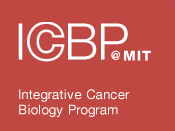| Title | Cytosolic delivery mediated via electrostatic surface binding of protein, virus, or siRNA cargos to pH-responsive core-shell gel particles. |
| Publication Type | Journal Article |
| Year of Publication | 2009 |
| Authors | Hu, Y, Atukorale, PU, Lu, JJ, Moon, JJ, Um, SH, Cho, EC, Wang, Y, Chen, J, Irvine, DJ |
| Journal | Biomacromolecules |
| Volume | 10 |
| Issue | 4 |
| Pagination | 756-65 |
| Date Published | 2009 Apr 13 |
| ISSN | 1526-4602 |
| Keywords | Animals, Bone Marrow, CD8-Positive T-Lymphocytes, Cytosol, Dendritic Cells, Drug Delivery Systems, Endosomes, Female, Gels, Gene Knockdown Techniques, Hydrogen-Ion Concentration, Influenza A virus, Mice, Mice, Inbred C57BL, Mice, Transgenic, Monocytes, Nanoparticles, Ovalbumin, Receptors, Antigen, T-Cell, RNA, Small Interfering, Static Electricity, Surface Properties |
| Abstract | We recently described a strategy for intracellular delivery of macromolecules, utilizing pH-responsive "core-shell" structured gel particles. These cross-linked hydrogel particles disrupt endosomes with low toxicity by virtue of physical sequestration of an endosome-disrupting "proton sponge" core inside a nontoxic hydrophilic shell. Here we tested the efficacy of this system for cytosolic delivery of a broad range of macromolecular cargos, and demonstrate the delivery of proteins, whole viral particles, or siRNA oligonucleotides into the cytosol of dendritic cells and epithelial cells via core-shell particles. We assessed the functional impact of particle delivery for vaccine applications and found that cytosolic delivery of protein antigens in dendritic cells via the core-shell particles promotes priming of CD8(+) T-cells at 100-fold lower doses than soluble protein. Functional gene knockdown following delivery of siRNA using the particles was demonstrated in epithelial cells. Based on these findings, these materials may be of interest for a broad range of biomedical applications. |
| DOI | 10.1021/bm801199z |
| Alternate Journal | Biomacromolecules |
| PubMed ID | 19239276 |
| PubMed Central ID | PMC2769516 |
| Grant List | CA112967 / CA / NCI NIH HHS / United States CA119349 / CA / NCI NIH HHS / United States U54 CA112967-059003 / CA / NCI NIH HHS / United States U54 CA119349-04 / CA / NCI NIH HHS / United States / / Howard Hughes Medical Institute / United States / / Howard Hughes Medical Institute / United States |
